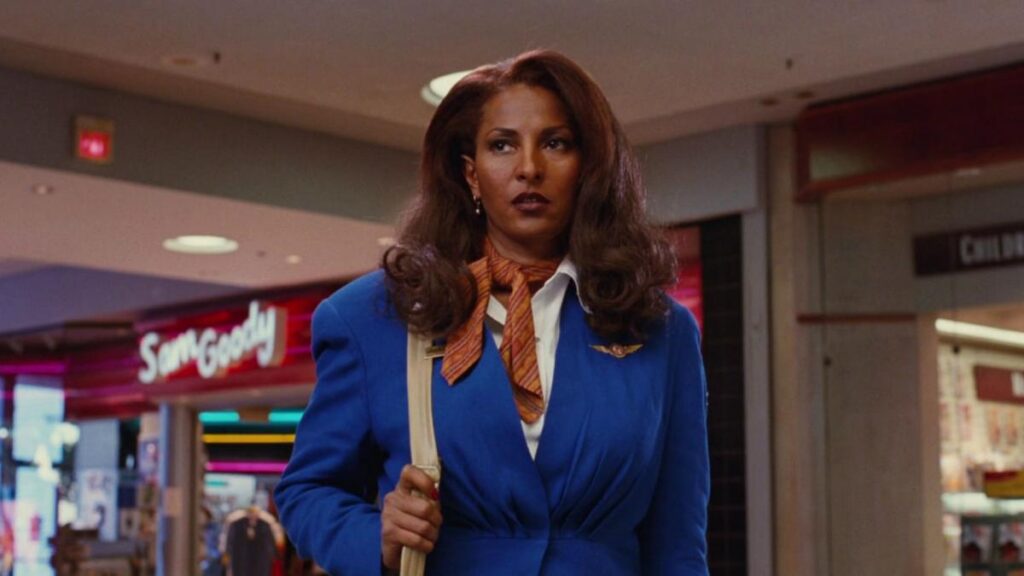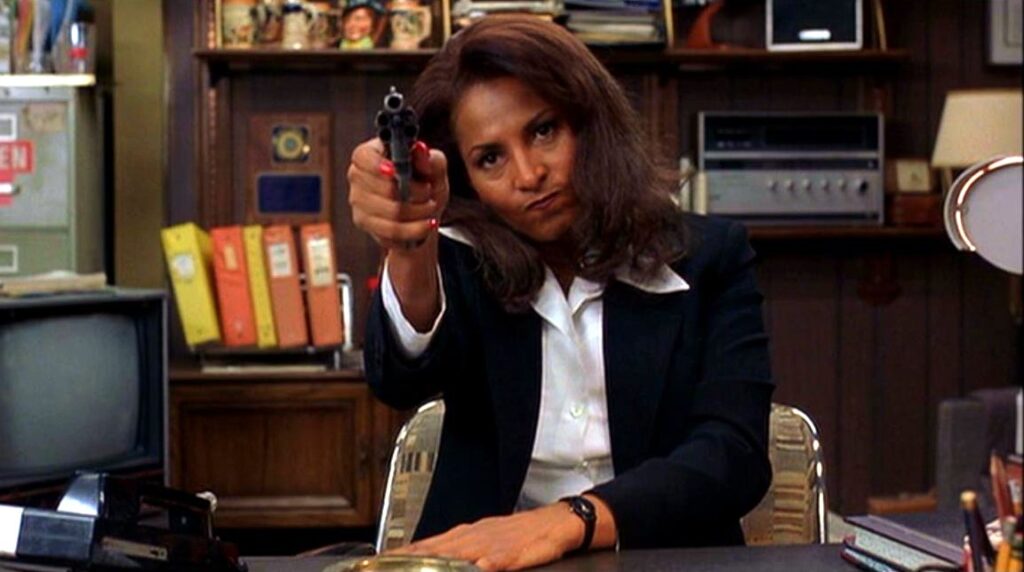In 1997, against some soulfully sung poetry from Bobby Womack, the world was introduced to Jackie Brown as she drifted across our screens and into cinematic icon status, a place where she’s remained ever since.
Across 110th Street, written by Womack, chronicles the struggle of a ghettoised Black America in the early 1970s, yet the words introduce this movie made over twenty years later and still hold relevance today. For many the song is simply an apt piece of Black music to introduce a Black character but it’s loaded with context. There’s also that moment in the opening scene where Jackie starts running to get her next flight but the metaphor that accompanies this is visible throughout the entire journey of her character, she never stops pressing ahead as if to get away from some kind of personal damnation or perhaps just the struggle.

Based on Elmore Leonard’s novel Rum Punch, Jackie Brown is the story of an air stewardess who, after getting caught with lots of undeclared cash and a little cocaine, realises she needs to outwit the police, a gangster and a general bad guy in order to avoid jail or getting killed.
Jackie was busted for some side hustle smuggling but the reality is she’s a woman who’s on her last chance and is searching for a means to avoid the incarceration of her circumstance, and also just a shot at a decent life for herself; to get free from the trials many go through when the American dream decides to pass them by. This is a tale of the underdog scratching their way out, a story, regardless of race, so eternally relatable to the masses, and one many find a piece of themselves in.
When Tarantino pitched his vision for this movie, was he met with jubilation or did the producers think he was taking a risk. Hollywood, a place that so often fills their screens with clichés put Brown on an equal playing field with her male counterparts, equally amazing is the fact that the character was written to be in her forties, for Hollywood, back then, to write stories for and about middle aged WOC was rare. This film has a kind of authenticity and the Brown character wasn’t just a generalised idea of what a Black woman in America is probably like. Even now this film still feels pretty unique.

Today, when filmmakers wonder how they can write about a woman of substance or diversify on-screen talent, they should look to Jackie Brown. Quentin Tarantino created a world of colour and intelligent characters with distinguished ambitions, his film offered up that one thing so many filmmakers strive for, originality, Tarantino himself being a master of this such thing.
There’s no doubt this 90s film will keep finding its way to the top, forever ageless and always there to be rediscovered and re-loved, over and over again in this perpetual loop of classic cool. As the great lady herself said, “I always feel like I’m starting over”, and with Jackie Brown, you are.
By Alicia Jones

Alicia previously studied film and now works freelance in TV drama production. You can follow her on Instagram and Twitter.
